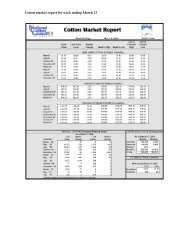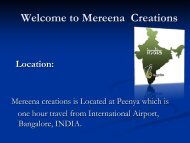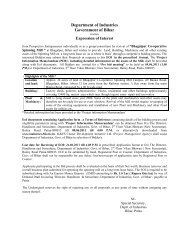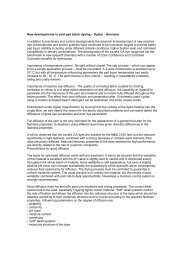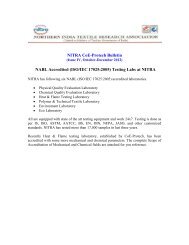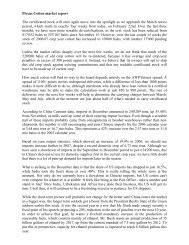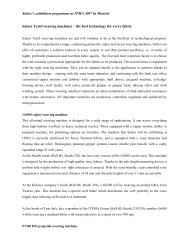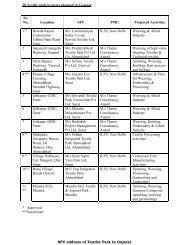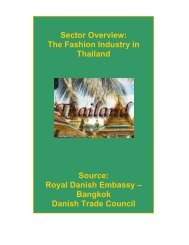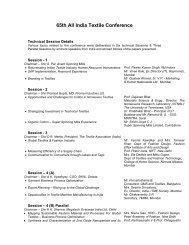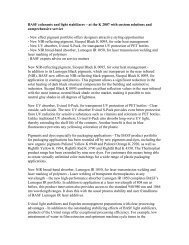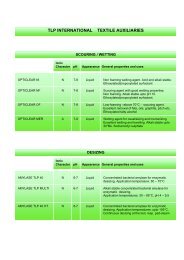Create successful ePaper yourself
Turn your PDF publications into a flip-book with our unique Google optimized e-Paper software.
local factory has 400 workers and provides an incentive scheme to workers. The factory<br />
supplies both its own stores as well local retail outlets. As a result, it is one of very few<br />
factories in the local clothing industry that has seen growth over the past few years.<br />
Textile manufacturers are seeing the benefit of entering into the design-intensive industry<br />
by creating their own brands. South African textiles company Vlisco has found a gap in<br />
the market by creating “Afro-Gucci brands (Makgetla, 2006). The label, known as “Aziza” -<br />
which means “gorgeous” in Swahili - was launched in July 2006 with the intention of<br />
exporting this conceptualisation of a “pan-African” design.<br />
In 1987, the South African Fashion Designers Association (SAFDA) was formed by local<br />
designer Sonwabile Ndamase, who saw a need to bring together under one body the<br />
severely fragmented fashion industry, so that designers could have access to various<br />
sources and use the agency to catalyse cohesion among various related sectors. He<br />
realised that the fashion design sector cannot operate in a vacuum.<br />
The ideas of SAFDA are to:<br />
Bring together and create partnerships with all stakeholders in the design industry both<br />
locally and internationally. Encourage distinctive South African design. Maintain<br />
standards of quality that are comparable with international benchmarks. Provide a<br />
platform for young designers to market their products and innovation. Link designers<br />
with credible clothing manufacturers and act within a framework of sound social and<br />
business ethics to create and maintain social responsibility projects by assisting and<br />
promoting sectors of the informal economy operating within the clothing industry.<br />
(Vukani Fashions)<br />
A further development towards industry cohesion is the creation of the Cape Town Fashion<br />
Council. Established in July 2006, the aim of the Council is to be the “representative<br />
mouthpiece and common platform for the industry.” Currently housed under the wing of<br />
the Cape Provincial Government Department of Economic Development, the Council<br />
seeks to position itself as an enabling hub for fashion designers, government bodies,<br />
retailers, manufacturers and tertiary institutions to pool their expertise and resources. There<br />
are concerns that opposition from the various districts and municipalities might arise from<br />
plans to implement similar projects, which would create even more contestation among<br />
various representative bodies claiming control over designers.<br />
53



